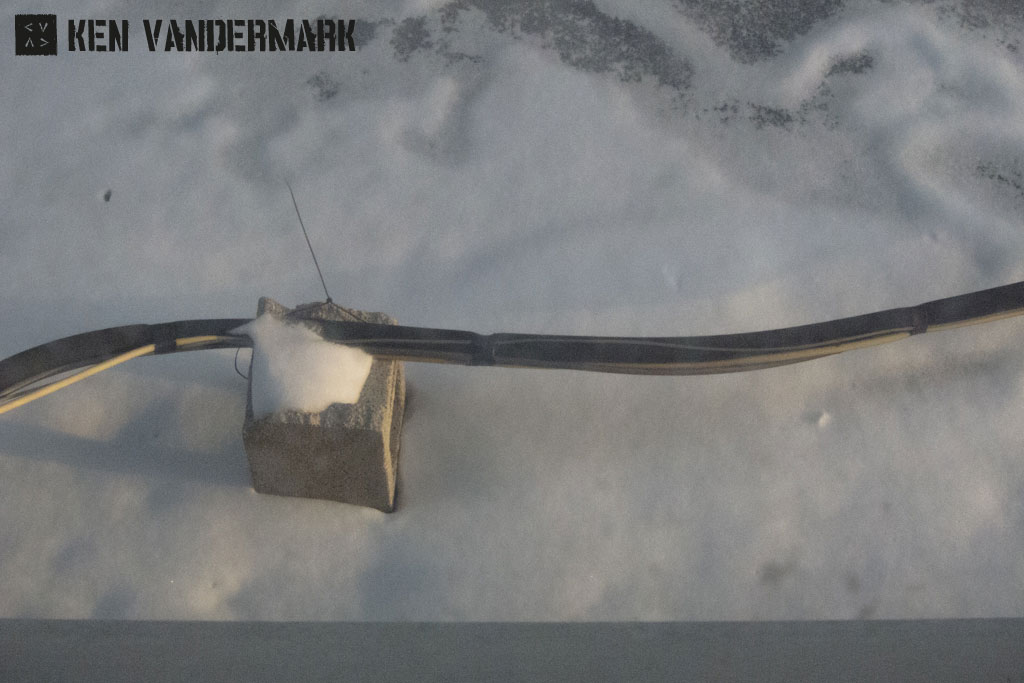

Salt Task
Chris Corsano/Sylvie Courvoisier/Nate Wooley (Relative Pitch)
Argonautica
Nate Wooley (Firehouse 12)
Shelter
Steve Heather/Jasper Stadhouders/
Ken Vandermark/Nate Wooley (Audiographic) by John Sharpe
Nate Wooley stands among the most resourceful trumpeters on the scene. No wait. Make that most resourceful musicians. Because his ambit stretches way beyond exploring what he can do with his instrument, into what music can be and how it is done. His concepts range from solo recitals to 19-strong ensembles by way of small jazz groups with a twist and a slew of fully improvised meetings both at home and abroad. The three discs at hand show almost limitless possibilities.
Salt Task finds Wooley with familiar accomplices in drummer Chris Corsano and pianist Sylvie Courvoisier. Collectively they birth four spontaneous navigations covering a huge dynamic range. Traditional roles are there to be ignored and at times the instruments are used as much for their potential as sound generators as for their inherent tonal properties. Each member of the trio drops in and out, meaning they examine all the possible combinations. The lengthy title cut perfectly illustrates the give and take. At one point, a trumpet/drum duet narrows down to Wooley moving from hiccupped blurts to disjointed gobbets and finally a pinched repeated pattern. This tempts Courvoisier, who cracks a reiterated note at the same tempo while Corsano adds correspondingly spiky percussion. Gradually the consonance unravels and the threesome embark on the next leg of their journey. Not every passage is so amenable to analysis, but the next move is always a surprise. Courvoisier often creates the underpinning structure around which a sense of shared purpose develops. Nowhere is that more obvious than in the concluding “Stalled Talks” where she alternates an interior string shimmer with sequences of clipped notes, establishing the template for similarly satisfying polarized exchanges.
Trumpet, piano and drums are the tools of choice on Argonautica as well, but this time Wooley doubles the complement. Intended as a tribute to his mentor, trumpeter Ron Miles, the sextet tackles the single 43-minute title epic, which intersperses written material throughout a loosely woven sonic tapestry. Alongside Miles and Wooley are drummers Rudy Royston and Devin Gray and pianists Cory Smythe and Jozef Dumoulin. And it is the latter, a specialist on the Fender Rhodes and electronics, whose distinctive sound, which in its fuzz and rumble sometimes emulates an electric bass although at others something more nebulous, lies at the core of the date. Miles offers a lyrical unaccompanied introduction, which recalls his work with guitarist Bill Frisell, blending imperceptibly into the first thematic section. Further spots emerge for new music whizz Smythe and the leader himself. Another highlight comes with the delightful call-and-response section for the paired brass, diverging when Wooley’s staccato bursts contrast against Miles’ sustains, only to converge once more, buttressed by erratic Fender subversion. The final section, built around Dumoulin’s driving vamp and roiling tandem drummers, distantly echoes Miles Davis’ Bitches Brew era even down to the drifting slowly unfurling echoplexed trumpet lines, but turns overly murky before Smythe’s valedictory musings.
On Shelter, Wooley is part of a quartet with reedplayer Ken Vandermark, Dutch bassist/guitarist Jasper Stadhouders and Australian drummer Steve Heather. Wooley favors the more conventional style recognizable from his jazzy quintet recordings, albeit one that possesses an experimental edge. Though everyone contributes to the band’s book, meaning they traverse a wide stylistic range, there is already a cohesive group identity discernible. Wooley’s “Burnt Njal” begins with trumpet mutters and raspberries in inventive consort with tappy cymbals and squeaky noisebox. Martial cadences buoy understated almost songlike trumpet, presaging a quicksilver twisting twosome with clarinet. Wooley has forged a fertile partnership with Vandermark and such face-offs feature prominently among the best moments. Another exciting parley stands out on Wooley’s “Bartleby”, following a wonderful solo trumpet prologue and a series of fast unison phrases. Other highpoints include Vandermark’s opening “F-1”, which showcases Wooley in two discrete settings, first belaying tightly coiled figures and liquid squeals over a pounding baritone- fuelled riff, then whooshing texturally over scratchy bass and crisp drums, and Heather’s gently processional “Of Use”, which brings out brief and incongruously wayward solos from across the band. Hopefully this is a unit that enjoys an extended existence.
For more information, visit relativepitchrecords.com, firehouse12records.com and audiographicrecords.com. Wooley is at Greenwich House Music School May 6th with Harris Eisenstadt, Issue Project Room May 16th and The Stone May 20th. See Calendar.
© 2024 Ken Vandermark – musician & composer | Disclaimer